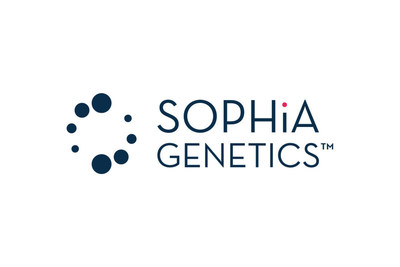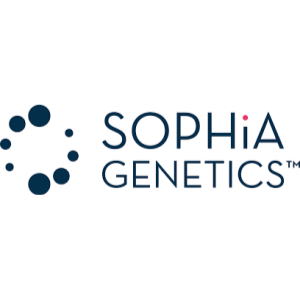SOPHiA GENETICS Launches New Residual Acute Myeloid (RAM) Application
SOPHiA GENETICS has announced the launch of its new Residual Acute Myeloid (RAM) Application, aimed at enhancing measurable residual disease (MRD) testing. This application is designed to support the monitoring of Acute Myeloid Leukemia (AML), one of the most common types of leukemia in adults. Over 50% of AML patients relapse within three years of remission, making post-treatment monitoring critical. The RAM Solution, part of SOPHiA's DDM Platform, offers next-generation sequencing (NGS)-based MRD testing with high sensitivity, detecting one cancer cell among 10,000. This tool provides longitudinal variant monitoring, comprehensive MRD reports, and rapid results within four days. The solution will be available globally this summer and aims to improve patient outcomes by detecting early signs of relapse.
- Launch of new RAM Application expanding oncology portfolio.
- High sensitivity NGS-based MRD testing detects one cancer cell among 10,000.
- Provides longitudinal variant monitoring and comprehensive MRD reports.
- Rapid MRD results available within four days.
- Global availability planned for this summer.
- No specific financial data or revenue projections provided.
- No information on the cost or pricing of the new application.
Insights
The introduction of SOPHiA GENETICS' Residual Acute Myeloid (RAM) Application is a promising development in the field of oncology. Acute Myeloid Leukemia (AML) is a serious condition, with over 50% of patients relapsing within three years of achieving remission. The ability to detect measurable residual disease (MRD) is key to monitoring and addressing potential relapses early. This new tool offers a robust method for detecting even minimal traces of cancer, as low as 0.01% variant allele frequency (VAF). This degree of sensitivity can significantly influence how oncologists manage post-remission therapy, potentially improving patient outcomes through earlier intervention. It's also noteworthy that the solution utilizes next-generation sequencing (NGS), which is currently one of the most advanced methods for cancer detection and monitoring. The continuous improvement of its machine learning algorithms could further enhance its accuracy and reliability over time.
From a medical research perspective, the SOPHiA DDM™ RAM Solution stands out due to its capability to longitudinally track mutations. This feature is particularly valuable in the context of clinical research, where understanding the evolution of cancer at the molecular level is essential. The application’s ability to provide comprehensive MRD reports and customizable graphical representations can support researchers in identifying the most effective treatment sequences. Furthermore, the rapid turnaround time of four days for results is a significant improvement over conventional methods, facilitating timely decisions in both clinical and research settings. This advancement not only aids in patient care but also enhances the quality and efficiency of clinical trials, potentially accelerating the development of new therapies.
From a market perspective, the launch of the RAM Application could positively impact SOPHiA GENETICS' position in the healthcare technology sector. The company's focus on data-driven medicine and the expansion of its oncology portfolio with this innovative MRD solution may attract a wider customer base, including both clinical practitioners and researchers. Acute Myeloid Leukemia represents a significant segment within oncology and enhancing tools for its management aligns well with ongoing market trends towards precision medicine and personalized healthcare. Given the unmet medical needs in AML and the high relapse rates, there is a clear demand for advanced monitoring solutions. SOPHiA GENETICS' ability to meet this demand with a highly sensitive, rapid and customizable solution could translate to increased adoption and market share. This development is likely to be viewed positively by investors, as it underscores the company's commitment to innovation and its potential for growth in the competitive oncology market.
Novel application supports measurable residual disease (MRD) testing to help monitor cancer and stay ahead of relapse
Acute Myeloid Leukemia (AML) represents about one percent of all cancers worldwide, yet is one of the most common forms of leukemia in adults1. Over 50 percent of AML patients relapse within 3 years after achieving complete remission2, therefore post-treatment monitoring is imperative for AML patients, particularly within the first two years, to help quickly detect any signs of relapse3. MRD solutions can help inform post-remission therapy and identify early relapse, and serve as a primary endpoint in clinical trials, helping researchers detect even the smallest trace of cancer and support better patient outcomes.
"AML unfortunately still remains an area of high unmet medical need today, with associated suboptimal patient outcomes. MRD measurement and monitoring has a critical role to play, for example by enabling research into the most optimal sequencing of therapies," said Philippe Menu, M.D., PhD., Chief Medical Officer and Chief Product Officer, SOPHiA GENETICS. "We are proud to contribute to the fight against AML through our SOPHiA DDM™ RAM Solution. In particular we feel that the capability to seamlessly track longitudinally the evolution of individual mutations over time through a dedicated add-on module of our SOPHiA DDM™ Platform has the potential to be a game-changer for clinical researchers."
Next-generation sequencing (NGS)-based MRD testing is among the most advanced in cancer screening and monitoring, and can be found only with highly sensitive methods. The SOPHiA DDM™ RAM Solution provides users with the confidence that MRD will detect even one cancer cell among 10,000 cells. This application will allow users to stay ahead of disease response with the analytical capabilities of the SOPHiA DDM™ Platform, enabling sensitive variant detection down to
Customers using the SOPHiA DDM™ RAM Solution will have access to longitudinal variant monitoring, allowing them to visualize the mutational landscape for each patient and its evolution over time. The solution also provides users with the most up-to-date databases and customizable reporting features to generate graphical representations and comprehensive MRD reports.
Additionally, the SOPHiA DDM™ RAM Solution will continually hone its machine learning algorithms to provide the most accurate MRD results in just four days.
Representatives from SOPHiA GENETICS are available at AMP (Association for Molecular Pathology)
For more information on SOPHiA GENETICS, visit SOPHiAGENETICS.com and connect on LinkedIn.
About SOPHiA GENETICS
SOPHiA GENETICS (Nasdaq: SOPH) is a cloud-native healthcare technology company on a mission to expand access to data-driven medicine by using AI to deliver world-class care to patients with cancer and rare disorders across the globe. It is the creator of the SOPHiA DDM™ Platform, which analyzes complex genomic and multimodal data and generates real-time, actionable insights for a broad global network of hospital, laboratory, and biopharma institutions. For more information, visit SOPHiAGENETICS.com and connect with us on LinkedIn.
SOPHiA GENETICS products are for Research Use Only and not for use in diagnostic procedures unless specified otherwise. The information in this press release is about products that may or may not be available in different countries and, if applicable, may or may not have received approval or market clearance by a governmental regulatory body for different indications for use. Please contact support@sophiagenetics.com to obtain the appropriate product information for your country of residence.
SOPHiA GENETICS Forward-Looking Statements:
This press release contains statements that constitute forward-looking statements. All statements other than statements of historical facts contained in this press release, including statements regarding our future results of operations and financial position, business strategy, products, and technology, as well as plans and objectives of management for future operations, are forward-looking statements. Forward-looking statements are based on our management's beliefs and assumptions and on information currently available to our management. Such statements are subject to risks and uncertainties, and actual results may differ materially from those expressed or implied in the forward-looking statements due to various factors, including those described in our filings with the
1 https://www.cancer.org/cancer/types/acute-myeloid-leukemia/about/key-statistics.html | ||
3 https://onlinelibrary.wiley.com/doi/full/10.1111/apm.12926 | ||
![]() View original content to download multimedia:https://www.prnewswire.com/news-releases/sophia-genetics-launches-new-residual-acute-myeloid-ram-application-302179525.html
View original content to download multimedia:https://www.prnewswire.com/news-releases/sophia-genetics-launches-new-residual-acute-myeloid-ram-application-302179525.html
SOURCE SOPHiA GENETICS







